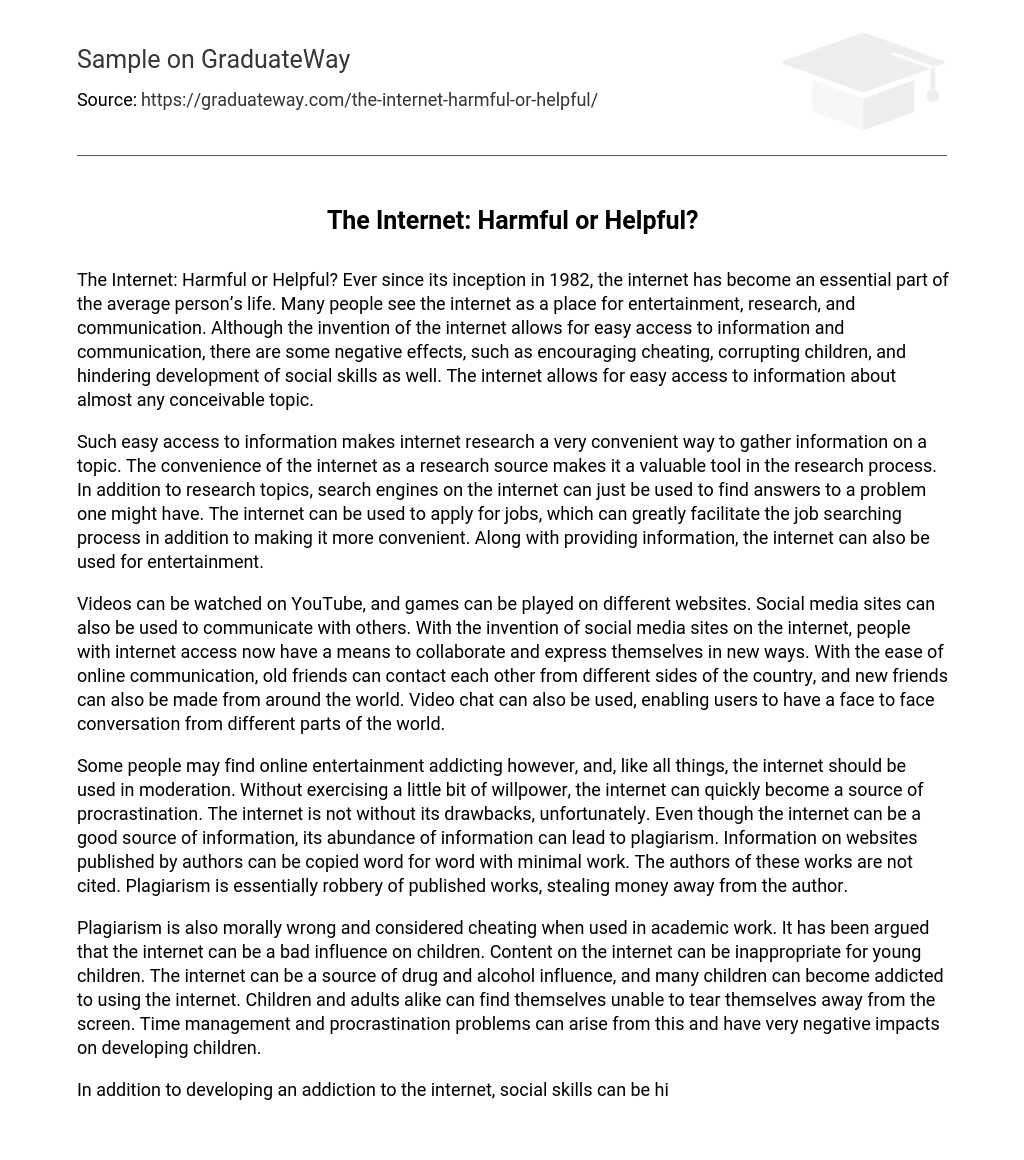Since its beginning in 1982, the internet has become an indispensable component of individuals’ daily routines. It is widely acknowledged as a venue for amusement, investigation, and interaction. Despite offering easy access to information and facilitating communication, the internet also carries certain drawbacks. These encompass encouraging deceitfulness, exposing children to unsuitable material, and impeding social skill development. Nonetheless, it is important to mention that one notable benefit of the internet is its effortless retrieval of information across diverse subjects.
The internet is a valuable tool for researching various topics and accessing information easily. It also simplifies tasks like problem-solving and job applications through its search engines. Additionally, the internet serves as a source of entertainment while providing information.
The internet has brought together different forms of entertainment and communication. YouTube allows for video watching, while websites offer game playing options. Social media sites have become a platform for collaboration and self-expression. These platforms enable people with internet access to connect with old friends who are far away, as well as make new friendships across borders. Additionally, video chat technology enables face-to-face conversations regardless of location.
While it is crucial to use the internet in moderation and avoid addiction, one must also be cautious of turning it into a procrastination tool. Furthermore, although the internet can be a valuable source of information, its extensive content raises concerns about plagiarism. Copying and pasting material without proper credit undermines authors’ work and denies them rightful compensation.
Plagiarism is considered unethical and a form of academic dishonesty. Moreover, the internet’s influence on children continues to be a subject of ongoing debate. On the web, young children may come across inappropriate content and be exposed to drug and alcohol influences that could potentially lead to addiction. Both adults and children face challenges in reducing their screen time, which can result in time management issues and procrastination. Ultimately, these issues have adverse impacts on the development of young individuals.
Excessive internet use has two adverse consequences: addiction and impaired social skills. Instead of engaging in face-to-face conversations, people now favor messaging as their main means of communication. As a result, this can lead to challenges in effectively interacting with others verbally, particularly in situations like job interviews that necessitate direct interaction. Additionally, the internet poses a notable risk of identity theft because hackers exploit vulnerable connections to gather personal information such as credit card numbers, names, and addresses.
The thief can use stolen data to make unauthorized purchases for the victim, and viruses can also obtain this information without the victim’s awareness until it is too late. The internet, an innovative invention that has revolutionized our world, provides a vast amount of information. However, excessive use of the internet can lead to problems. It can either provide unlimited assistance or become a major obstacle to productivity. To effectively utilize the internet, it is important to practice self-control and have efficient time management skills.





